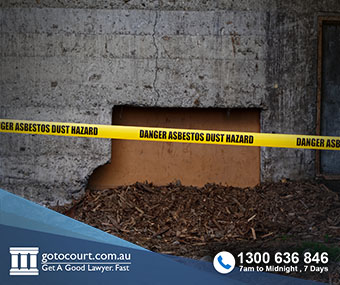Call our lawyers
now
or,
have our lawyers
call you
Informal Wills (NT)
Updated on Jan 10, 2023 • 5 min read • 157 views • Copy Link
Informal Wills (NT)
In the Northern Territory, a formal will adheres to requirements set out in the Wills Act 2000. These requirements are designed to ensure that only genuine wills are probated. However, the Supreme Court of the Northern Territory can validate an informal will as a true record of the deceased’s testamentary wishes. This article outlines the regulations that distinguish a formal will and the process involved in validating informal wills in the Northern Territory.
Formal Wills In The Northern Territory
The Wills Act 2000 stipulates that a will is not valid unless it is:
- in writing;
- signed by the testator (with an intention to execute the will); and
- witnessed by two people (who are not beneficiaries) who signed in the testator’s presence.
The wording of a will is not relevant to whether or not it is considered a formal will. A formal will can be written in simple language without using certain formalities such as “being of sound mind and body…”. In addition, in a formal will, a testator’s signature does not have to be placed at the end of the document, as long as it is present in some location.
A formal will also does not need to have an attestation clause. This clause states that the witnesses have personally seen the testator sign the will in their presence and in the presence of each other. However, if there is no attestation clause in a formal will, the witnesses are required to provide an affidavit to this effect when the will is probated. If the witnesses are not able to provide such an affidavit, the will is rendered informal.
Informal Wills NT
The court can dispense with the execution requirements and probate an informal will that does not fulfil the requirements above. The probate applicant (typically the executor or chief beneficiary) must establish that the testator genuinely intended the document to act as a will. The court makes an assessment based on the execution of the document and evidence of testamentary intentions. A document is likely to be considered an informal will if it is:
- a written or electronic document;
- that embodies the deceased’s testamentary intentions; and
- the court is convinced that the deceased intended the document to function as their will.
In short, a court can validate an informal document if it is satisfied that the deceased intended it to embody their testamentary intentions and constitute his or her will.
Document
The court can validate any type of document that records information and contains figures, marks, symbols or other perforation that is decipherable by someone qualified to interpret them. Also, a document can be anything from which images, sounds or writings can be reproduced.
In forming a view on the validity of a testamentary document, the court may have regard to any extraneous evidence that illuminates the deceased’s testamentary intentions and manner of execution. This includes evidence of statements the deceased made before their death, such as any testamentary promises.
Case Study
The Supreme Court of the Northern Territory recently examined the issue of informal wills in The Estate of the Late Rae Mackay Between Jacobs v Silbert and Shpilman [2019]. Justice Kelly considered whether informal documents could constitute an informal will able to be probated. The documents in question included:
- aa printed form with handwritten margin notes described as a “draft will” containing an optional checklist (some that the deceased had ticked);
- a single handwritten page attached to the first document;
- a single page with the address of the deceased’s daughter as beneficiary; and
- an unsigned, handwritten document that appears to be a testamentary document but contains no bequests.
In this case, the court considered a range of different questions when determining whether the documents constituted an informal will.
- Was there a document?
- Did it express the deceased’s intentions?
- Was the document executed according to statutory requirements?
- Did the deceased intend the documents to constitute her testamentary intentions?
- Did the deceased take any further steps to designate the document as testamentary?
- Was the document a draft and not intended to be the final version of her will?
- Was the deceased aware of the statutory requirements of a formal will?
Upon consideration of these questions, Justice Kelly determined that, at best, these documents could only be seen as a draft will. One of the most relevant factors was that the deceased was a solicitor experienced in wills and estates law, who would certainly have been aware of the requirements of a formal will. As such, the deceased could not have intended an unsigned document that was labelled “draft” to constitute her last will and testament.
The civil lawyers at Go To Court can answer any questions you have about informal wills in the Northern Territory. Contact or call 1300 636 846 today to speak with our specialist solicitors.

Affordable Lawyers
Our Go To Court Lawyers will assist you in all areas of law. We specialise in providing legal advice urgently – at the time when you need it most. If you need a lawyer right now, today, we can help you – no matter where you are in Australia.How It Works







1. You speak directly to a lawyer
When you call the Go To Court Legal Hotline, you will be connected directly to a lawyer, every time.


2. Get your legal situation assessed
We determine the best way forward in your legal matter, free of charge. If you want to go ahead and book a face-to-face appointment, we will connect you with a specialist in your local area.


3. We arrange everything as needed
If you want to go ahead and book a fact-to-face appointment, we will connect you with a specialist in your local area no matter where you are and even at very short notice.


















